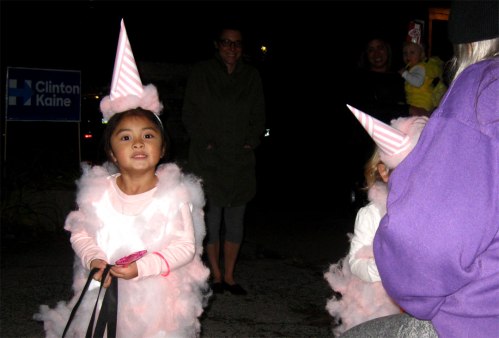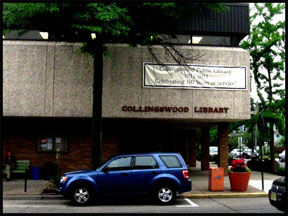 My friend Maria Fama and I were recently talking about libraries. Both us are writers and long-time friends. Of all of our accomplishments through the years, we are both really proud of the fact that our books can be found in The Free Libary of Philadelphia. There are presently five copies of my book Tea Leaves, a memoir of mothers and daughters (Bella Books, 2012) in the library system. One copy is at the Lovett Memorial Branch, and others are at Central, the Walnut Street and Indendence branches and the Joseph E. Coleman Northwest Regional Branch (in Germantown). One of these copies of Tea Leaves is being transferred between libraries and the last time that I checked a copy was on reserve.
My friend Maria Fama and I were recently talking about libraries. Both us are writers and long-time friends. Of all of our accomplishments through the years, we are both really proud of the fact that our books can be found in The Free Libary of Philadelphia. There are presently five copies of my book Tea Leaves, a memoir of mothers and daughters (Bella Books, 2012) in the library system. One copy is at the Lovett Memorial Branch, and others are at Central, the Walnut Street and Indendence branches and the Joseph E. Coleman Northwest Regional Branch (in Germantown). One of these copies of Tea Leaves is being transferred between libraries and the last time that I checked a copy was on reserve.

When Maria and I talked about the fact that libraries are so important to us because when we were working class kids on our way to growing up and becoming writers, the library was a sanctuary for us. I don’t have to tell you about the budget cuts affecting libraries in Philadelphia (and elsewhere) and the signs about limited hours on the doorways.
Without libraries, there would be fewer readers and most definitely fewer writers. There would be more violence in the streets and less learning. Can we afford that?

Recently, I did a reading from Tea Leaves at the Lovett Memorial Branch (my local library) of the Free Library of Philadelphia. I invite you to see the pictures and also to read the article that was written in NewsWorks about the reading. We had a lively discussion after the reading about our mothers, grandmothers, fathers and grandfathers, and the people’s history of Philadelphia. I credited the city as being a partner in my writing process. The library is a partner, too. It has been there with me through all the years. Let’s make sure it stays with us.


Madeleine and Barbara at the Lovett Library in Philadelphia

from NewsWorks article by Jane Shea
How does one process a mother’s mortality and honor her life, her history and her influence? Author, Janet Mason, found the answer in her writing. The resulting book, Tea Leaves: A memoir of mothers and daughters, documents that journey. Mason shared readings from Tea Leaves in her Mt. Airy neighborhood twice this past week at the Lovett Memorial Library last Tuesday and at the Big Blue Marble bookstore on Friday.
Mason’s mother, Jane, was diagnosed with late stage cancer in 1993, after being initially misdiagnosed. Mason did what comes naturally to an only child – she assumed the role of primary caregiver. She had six months left with her mother. In that time, Mason not only handled the “immense responsibility” of caring for a terminally ill parent, but also recorded those experiences, family stories, memories, history and learned how they shaped three generations of women.
…
Mason who describes her mother as a atheist, feminist, hopeless realist and an amazing storyteller always encouraged Mason’s writing. “I got a lot of validation,” she said. Through her published poetry and literary commentary on This Way Out radio program, Mason has pursued her creative dreams in a way her foremothers never could, making good on the advice of an early therapist who once told her, “You’re the only one who can write the story about your life.”
read the entire article
Read Full Post »




































![Tea%20Leaves_lg[1] Tea Leaves, a memoir of mothers and daughters from Bella Books cover image has photo of Jane Mason, age 10, taken in 1929.](https://tealeavesamemoir.wordpress.com/wp-content/uploads/2012/05/tea20leaves_lg1.jpg?w=195&h=300)